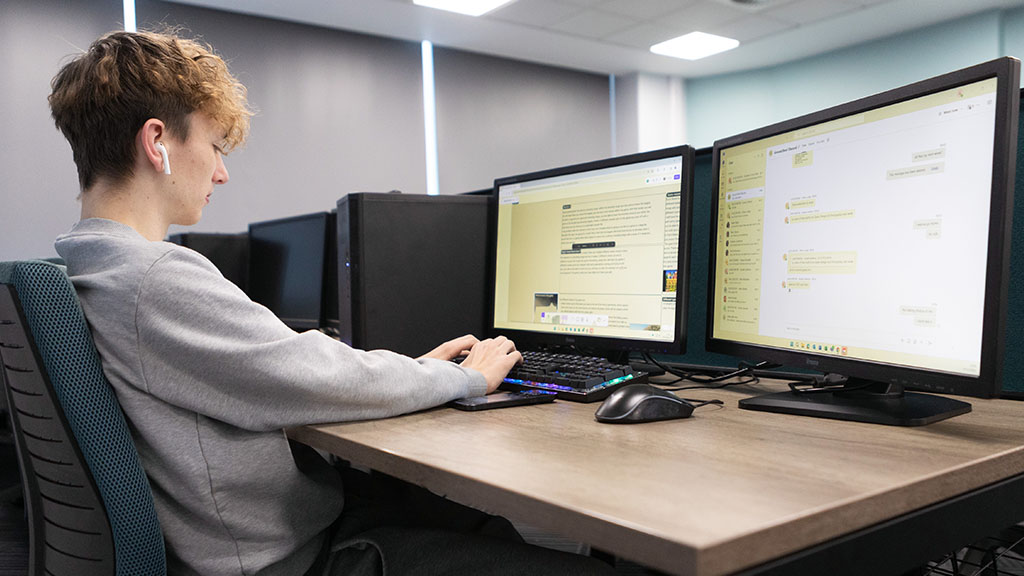Course Overview
This Apprenticeship is typically suited to individuals who support external customers and clients through a wide variety of digital channels this individual will help with access and services providing support two others in the use of digital systems.
Wider skill development will include gaining confidence using critical thinking, you will develop communication skills, problem solving skills and technical skills.
Through the apprenticeship some of the content you will learn includes how to communicate effectively using different channels considering terminology, you'll learn about operating digital information systems, understanding digital technologies, exploring system security and diagnosing technical problems by identifying and applying tools and techniques.
What You Will Study
This Apprenticeship covers KSB (knowledge (know it) skills (show it) & behaviours (live it).
The above will be shown through evidence collected and produced by you. The KSB are embedded into Duties:
There are 18 duties in total each Duty maps directly to a KSB.
- Provide technical support to customers through a range of communication channels
- Resolve digital issues using the appropriate tools and technologies
- Determine the root cause of technical issues to identify the potential solutions
- Configure a range of digital devices or systems to meet user needs
- Attendance Expectations
This is a work-based course, although you may be required to attend sessions to learn theoretical concepts relating to Digital Support Technician in agreement with your employer. Attendance to these sessions, where applicable, will support your achievement of the Apprenticeship.
If you are undertaking Functional Skills as part of your Apprenticeship, you will be required to attend College for a block week of teaching, per Functional Skill subject. This will be discussed at your enrolment and induction.
Throughout your Apprenticeship, you will be required to record the number of hours you spend learning and training. This will be equivalent to 20% of your working hours for the whole duration of the Apprenticeship.
This can be achieved through a range of methods, such as work-related training, or self-study within your usual working week.
This will be agreed with your employer at the start of your Apprenticeship.
- How You Will Be Assessed
You will be assessed using the following methods: Professional discussion, observation, producing work-based evidence, witness testimonies, written assignments.
- Final EPA (End Point Assessment)
- At the end of any apprenticeship is an EPA this EPA has 2 components
- First component is a project report with presentation followed by questions and answers
- Second component is a professional discussion which is underpinned by the portfolio of evidence
- Entry Requirements
Apprentices without Level 2 English and maths will need to achieve this level prior to taking the End-Point Assessment.
For those with an education, health and care plan or a legacy statement, the apprenticeship’s English and Maths minimum requirement is Entry Level 3. A British Sign Language (BSL) qualification is an alternative to the English qualification for those whose primary language is BSL.
- Fee Information
Please contact the Apprenticeship Recruitment Team on 01924 789469 or email
This email address is being protected from spambots. You need JavaScript enabled to view it.
